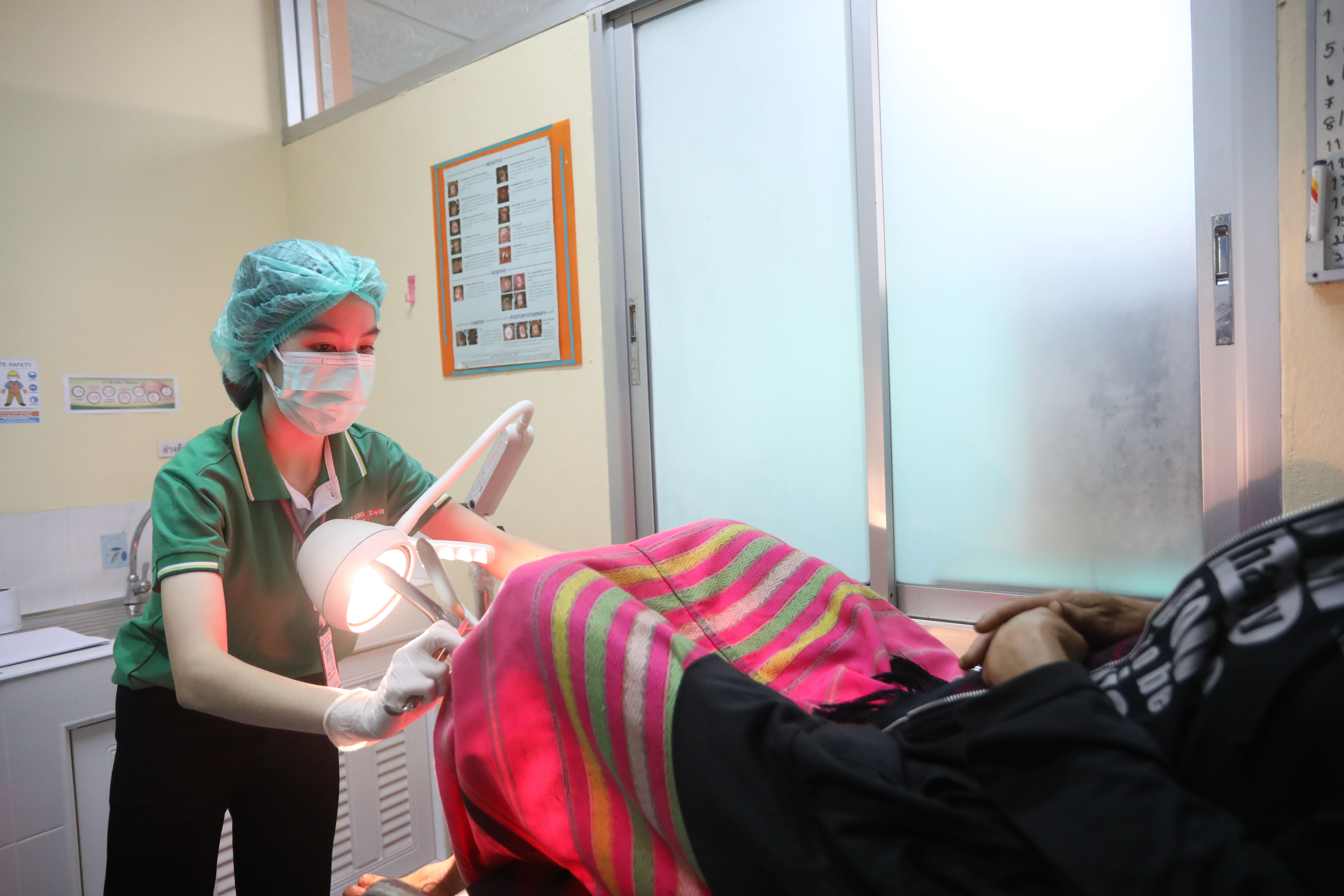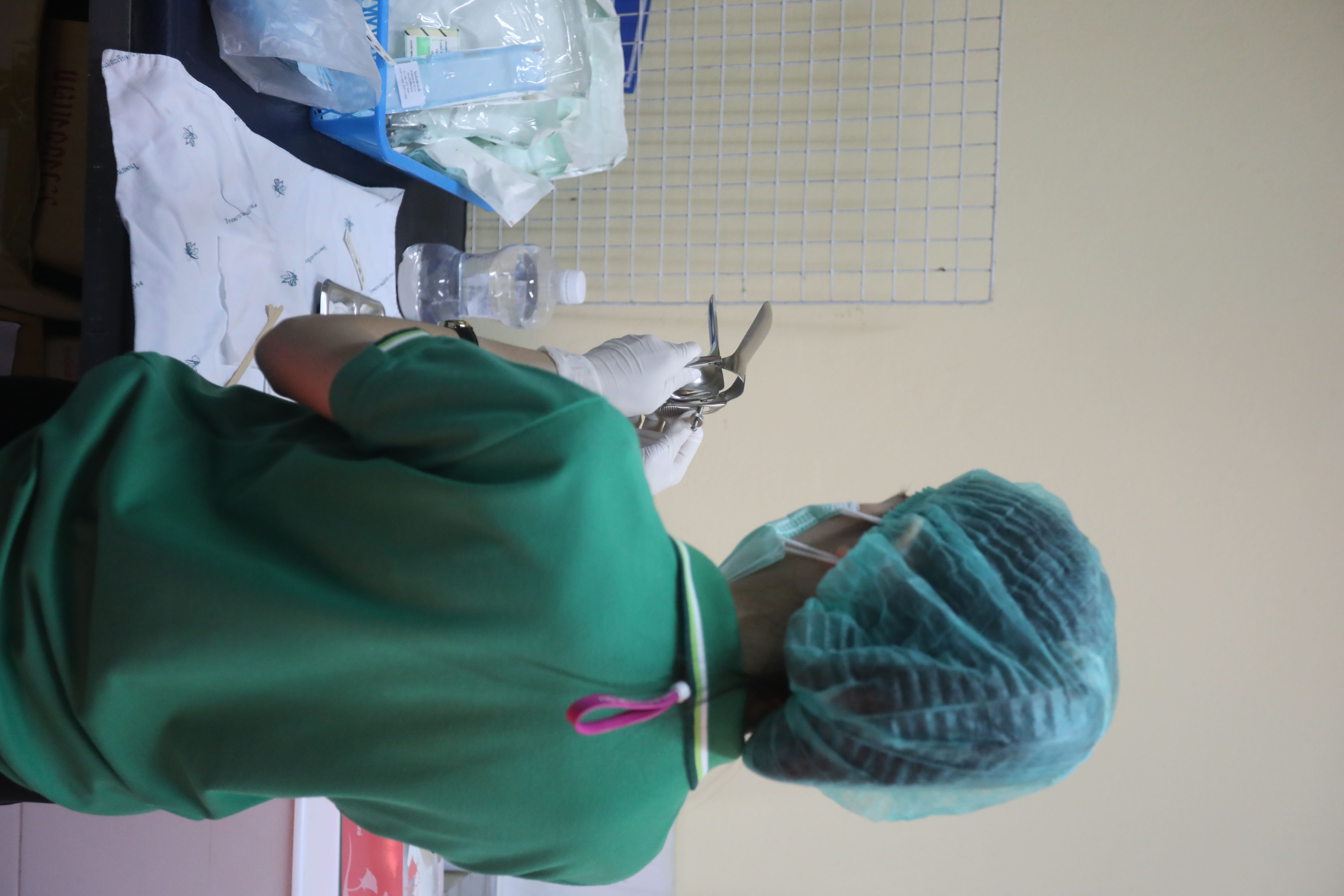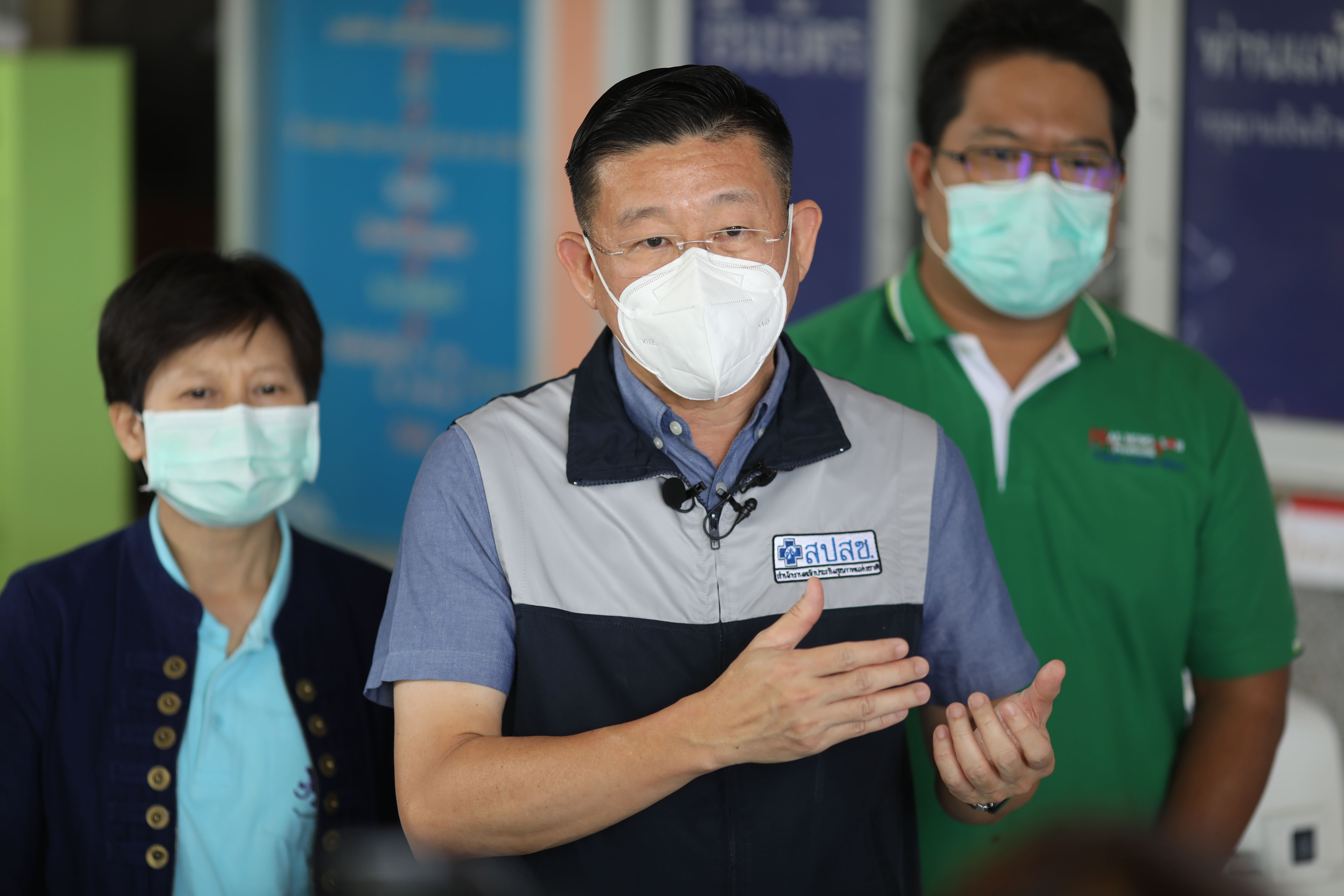
- Home
- DescriptionNews
Access to cervical cancer screening expands in remote areas

Access to cervical cancer screening expands in remote areas
A local hospital in Thailand’s northern Mae Hong Son province accelerates the effort to prevent women from cervical cancer, with support from the National Health Security Office (NHSO).
Mae Ho Tambon Health Promoting Hospital in Mae Sariang District has provided cervical cancer screening to women living in rural areas.
Cervical cancer is the second most common cancer in Thai women after breast cancer.
Around 9,000 new cases and 4,700 deaths caused by cervical cancer are reported each year.
“Our hospital is located in the rural and mountainous area home to indigenous people.

The majority are Karen ethnic groups. Cervical cancer screening is new to them,” said Jakkapong Srimueang, Mae Ho Community Hospital’s director.
“We need to implement an effective communication strategy, including sending letters to our target group.
We also work closely with village health volunteers who visit local communities to encourage women to have the tests.”
Each letter includes the appointment date with the hospital staff.
If the recipient is unavailable on that date, the hospital staff will notify the new date and resend her a letter or visit her house to perform the tests.
Jakkapong highlighted that free cervical cancer screening is available because his hospital has received funding from the Local Health Security Fund (LHF) under the Universal Coverage Scheme overseen by the NHSO.

The LHF provides the fund to local governments, hospitals and communities which want to initiate health projects to improve the health and well-being of local people.
Those projects may include the effort to strengthen health promotion and disease prevention.
Mae Ho Tambon Health Promoting Hospital has received the fund in the past three years, accelerating its effort to prevent women from serious illness and death caused by cervical cancer.
Its staff also provides local people with family planning consultations and birth control pills.
“Cervical cancer is preventable if the risk groups can access the tests as early as possible,” said Jakkrit.
However, the hospital staff found some challenges while implementing their health project.
One of those is the language barrier.

The hospital staff solved this challenge by recruiting village health volunteers who can speak ethnic languages and translate the hospital staff’s message to local communities.
The mountainous geography and connection are other major challenges.
As ethnic people live scatteringly in remote areas, hospital staff can not access them through in-person meetings or via phone calls.
Health promotion and disease prevention requires the use of signs and flyers in this case, with the assistance of village health volunteers who live in the communities and help deliver the messages.
On the other hand, many ethnic women avoid having the tests because they feel embarrassed in front of the familiar-face hospital staff.
This is solved by inviting health workers from other hospitals to conduct the tests.

NHSO deputy secretary-general Dr Athaporn Limpanyalers emphasized that the success of local health efforts requires multi-stakeholder collaboration, including local governments, health unities and village health volunteers.
Engaging local hospitals has increased access to cervical cancer tests, especially in remote areas.
It also encourages women to receive the tests as they don’t need to be concerned about the travel cost to hospitals in the cities.
//////////////////////////////////

